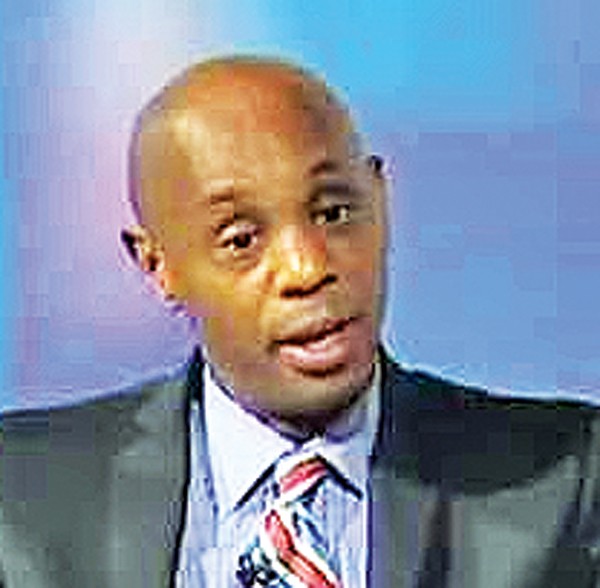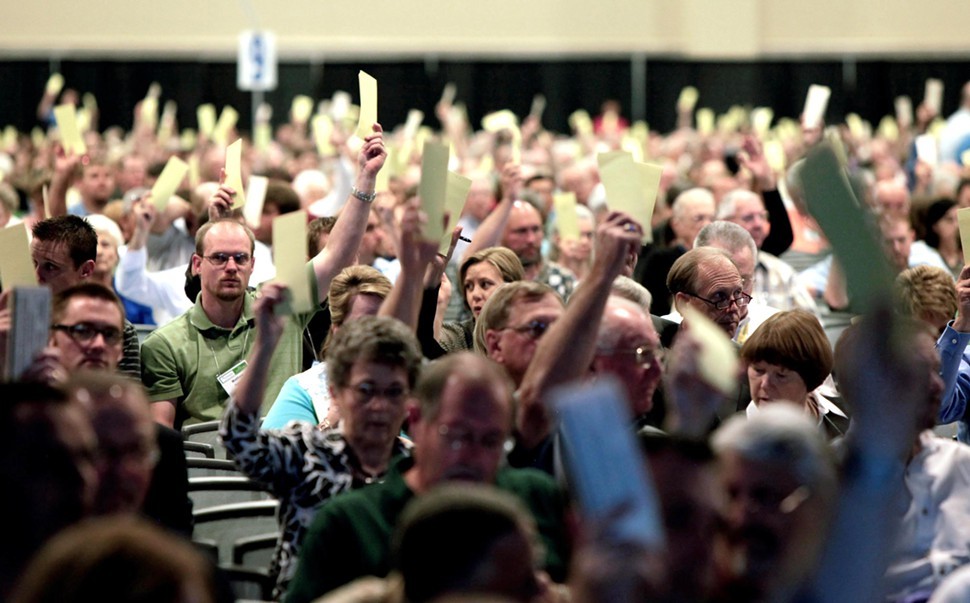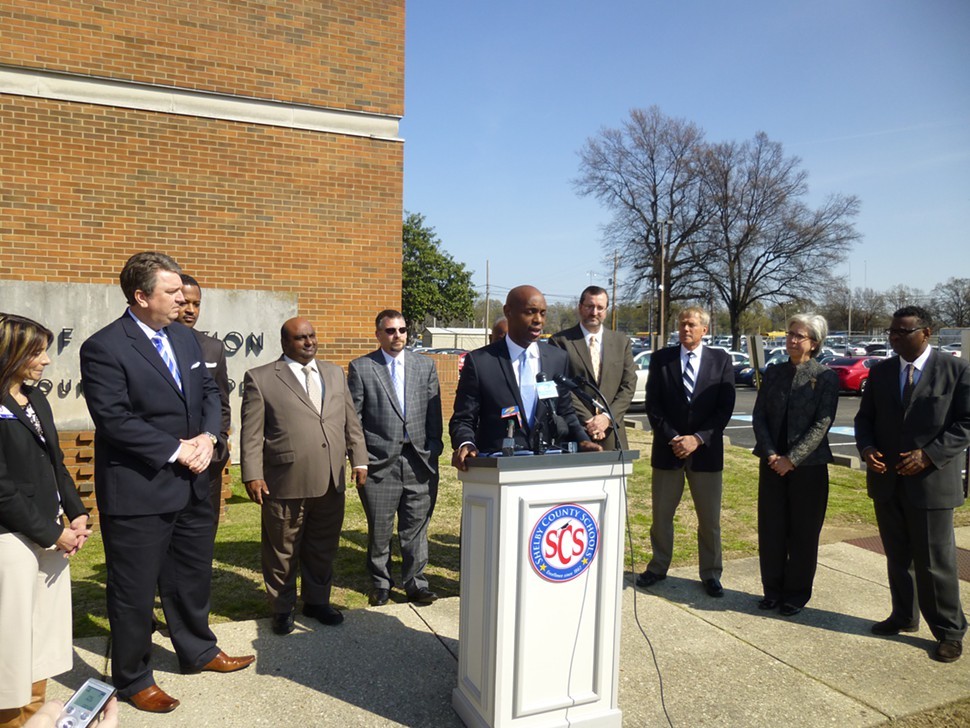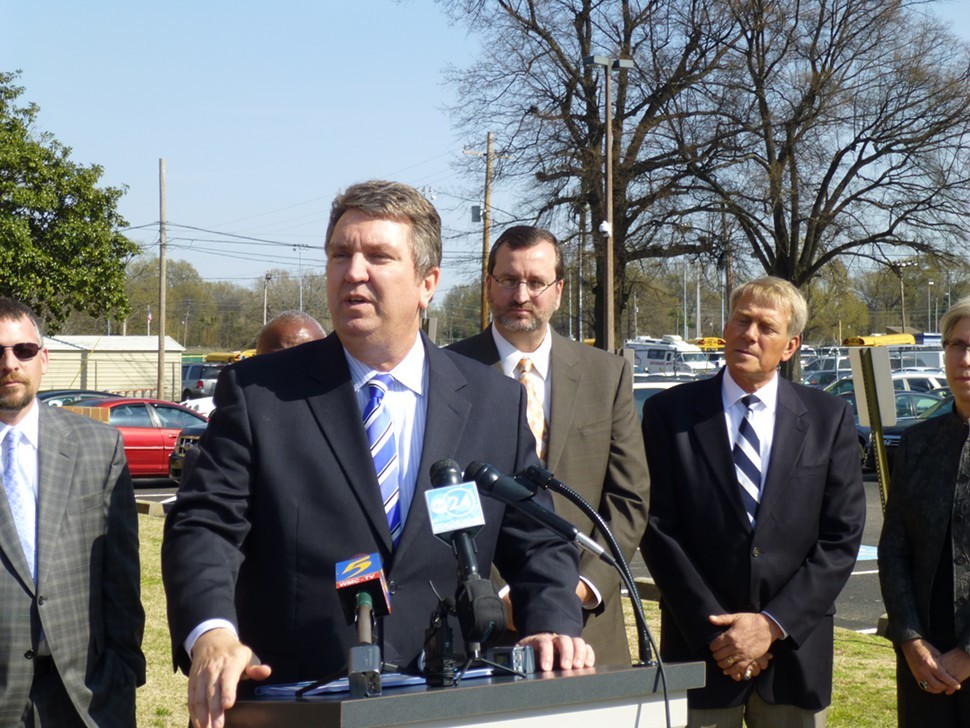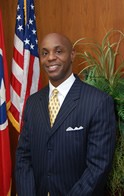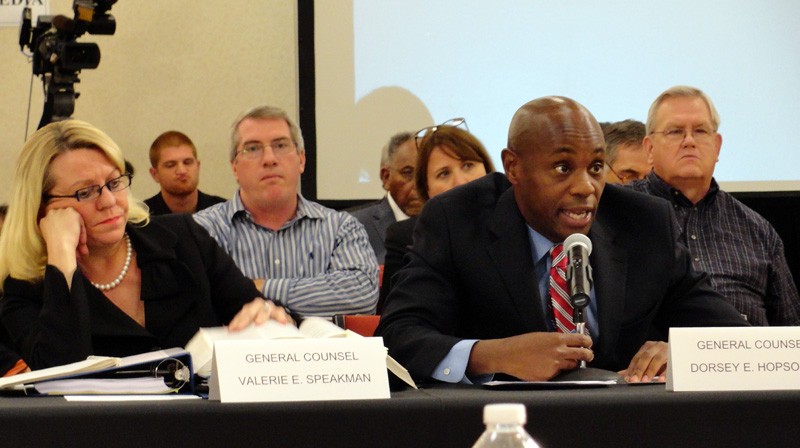On Monday, when Shelby County commissioner Chris Thomas decided not to offer his widely advertised motion for the commission to drop its litigation against the six suburban municipalities planning school systems, he was merely bowing to reality.
Several realities, in fact — beginning with the high probability that, even with the expected defection of Chairman James Harvey, a Democrat, from the ranks of lawsuit supporters, there was still a majority in favor of continuing with the lawsuit, consisting of six other Democrats and Republican Mike Ritz. That was enough to out-vote Thomas and the coalition of suburban Republicans that has steadfastly opposed the litigation. The best they could hope for was a 7-6 outcome against them.
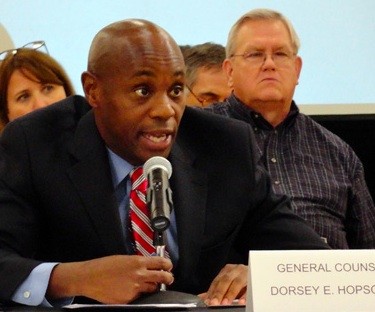
Another reality confronting Thomas was last week’s unveiling by Dorsey Hopson, superintendent of the unified Shelby County Schools system, of a plan that resolved one basic issue in ongoing negotiations between the suburbs and the commission — that of who would administer to the unincorporated areas of Shelby County. Hopson’s answer was clear and categorical: The unified system would.
The superintendent’s plan also went far toward resolving the other basic question: What to do about the school properties within the six suburbs of Germantown, Collierville, Arlington, Lakeland, Bartlett, and Millington? Hopson’s choice was to insist on leasing the buildings to the municipalities — at a rate to be agreed on but one that, it was clear, would not be the nominal one desired by the municipalities.
As Hopson spelled that out Monday night, at the SCS board meeting that saw his plan overwhelmingly approved, the leases would be for 40 years, with all sorts of provisos regarding defaults and damages that put the onus of compliance on the suburbs.
And, crucially, four schools on incorporated suburban turf would be retained by the united SCS system — Lucy Elementary School in Millington and three vintage institutions in Germantown: Germantown High School, Germantown Middle School, and Germantown Elementary.
As Germantown mayor Sharon Goldsworthy and others discovered when they appealed this verdict at Monday night’s SCS board meeting, there was virtually no chance of altering it. By state law, SCS is the official governing body for public education in Shelby County, it owns the school properties, and it has first dibs on their disposition. The rationale for selecting the particular four schools for retention by SCS was that the majority student population of each derived from the unincorporated areas, not from within the corporate limits of the host suburb.
Although Goldsworthy talked of conferring with her lawyers and continued to call for further discussions regarding the fate of the three Germantown schools — gaining a sliver of concession from Hopson that negotiations about the buildings (with him and board attorney Valerie Speakman) might conceivably touch on the issue — the chances of revision seemed remote.
The main reason for that was that no complaint was being heard from the other five affected suburban municipalities. Indeed, as SCS board member David Reaves of Bartlett explained somewhat apologetically when he declined Monday night to oppose the Hopson plan, “People in the north like this plan.” Mayor Mike Wissman of Arlington, a former board member and a bystander Monday night, confirmed that judgment.
The only board member voting against the Hopson plan was David Pickler, the former longtime chairman of the defunct all-suburban county school board, now a representative of Germantown. (And Collierville, too, though no grumbling about the plan was coming from that quarter.)
The once united front that could spur state Senate majority leader Mark Norris to seek remedial legislative action on behalf of the county’s suburban municipalities seemed irrevocably broken — a Humpty Dumpty that could not be patched back together.
It would appear that, after all the fire and brimstone and legislation and legal bickering, Hopson, the former attorney for Memphis City Schools and co-attorney for the provisionally unified system, had finally disposed of the central issues regarding the crisis-born school merger and the subsequent formation of municipal school systems. All that remains is some haggling over the cost of leasing school buildings.
Just in case, the county commission majority will almost certainly keep the existing lawsuit alive, though its linchpin, an accusation of resegregation, has been compromised somewhat by the Hopson plan’s de facto appropriation of minority students along Germantown’s unincorporated rim.
Presiding federal judge Hardy Mays, who has granted the litigating parties an additional 60 days to reach agreement, may soon be proclaiming an all-clear.
Jackson Baker is a Flyer senior editor.
